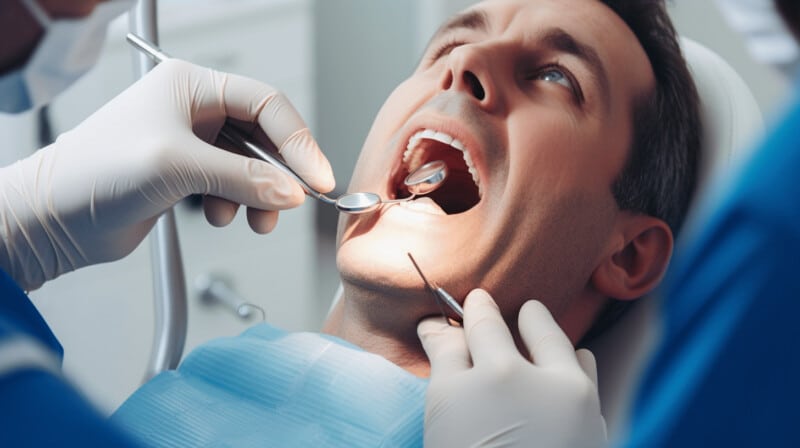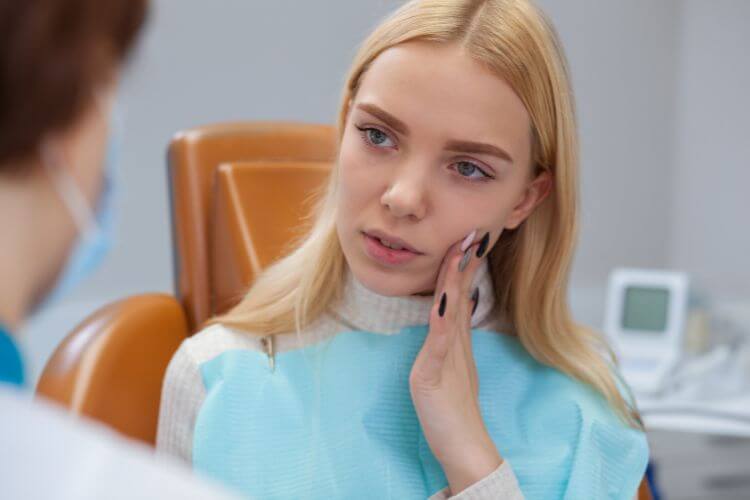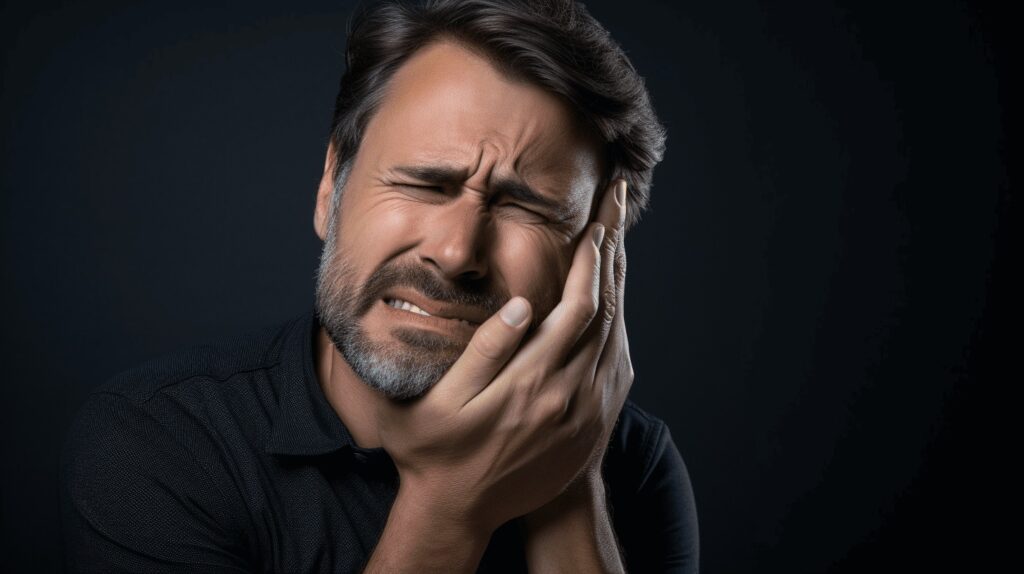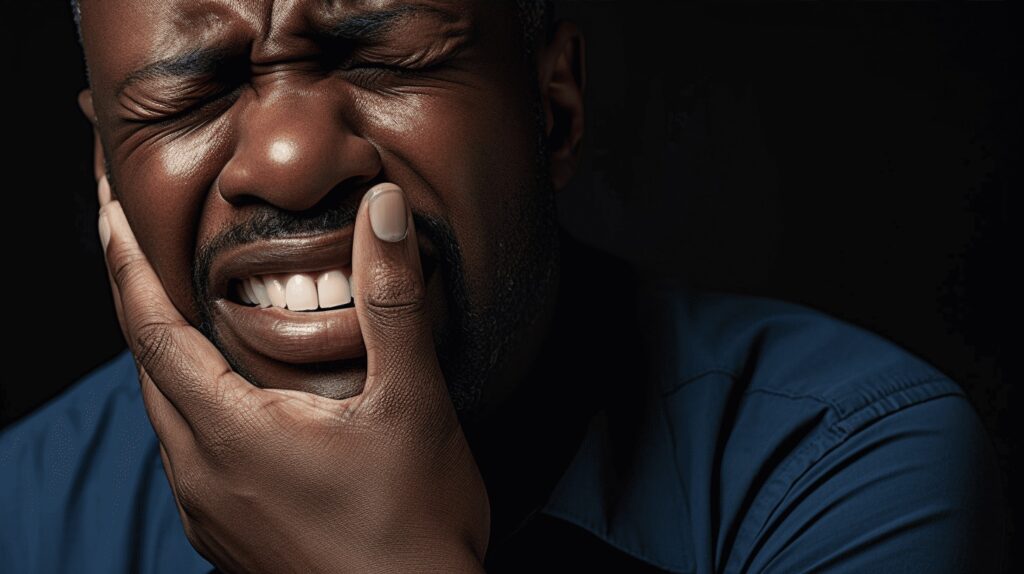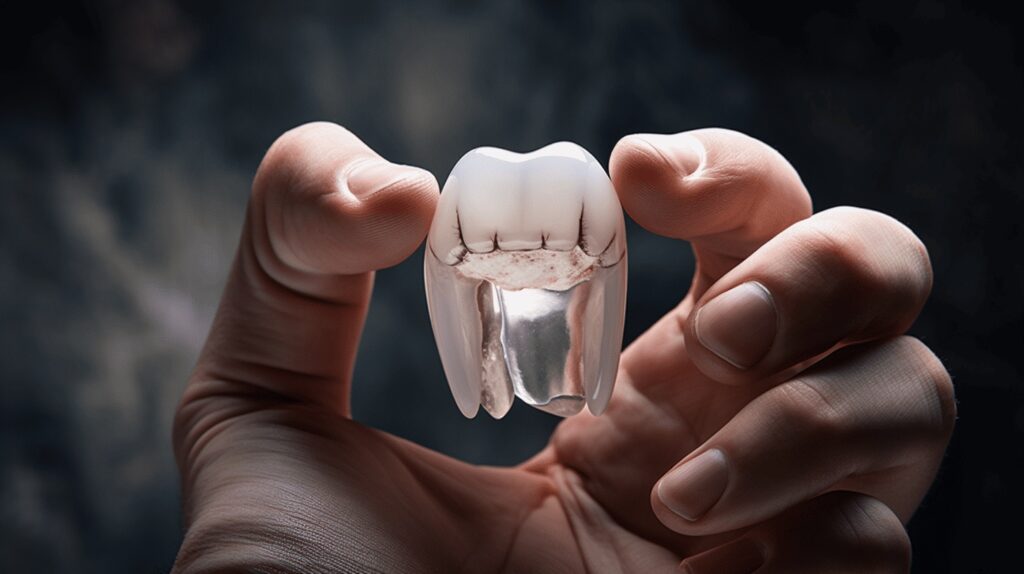Have you ever experienced severe tooth pain that couldn’t be remedied by your usual pain killers? Maybe you’ve had a sudden mishap that led to a cracked tooth. Or worse yet, have you ever dealt with a painful oral infection? These incidents are not only incredibly painful but may pose a real risk to your overall health. This is where the underrated superhero of the dental world steps in – emergency dental care!
Emergency Dental Care isn’t often on the radar for many people. “Who needs an emergency dentist?” is a question we hear quite often. However, the once dismissed notion usually becomes a pressing need amidst sudden, excruciating pain or a dental accident. The importance of emergency dental care goes far beyond alleviating immediate discomfort. It plays a critical role in maintaining overall oral health, saving natural teeth, and even averting potentially life-threatening situations.
In this article, we aim to shed light on the importance of emergency dental care, its role in treating acute dental issues, and how it helps in preventing significant future complications. Let’s dive into the world of emergency dentistry and get the low down on everything you need to know! Let’s bite into the details, shall we? 🦷
Table of Contents
Role and Importance of Emergency Dental Care
Ever wondered about the crucial role played by emergency dental care in maintaining oral health and preventing further damage? 🤔 From preserving natural teeth to treating infection, it is the first-aid equivalent for dental issues.
Preventing Further Damage and Suffering
Without swift intervention, dental emergencies can swiftly spiral out of control, yielding severe complications and heightened pain. Emergency dentistry leaps into action to handle urgent dental conditions needing immediate treatment. This immediate care plays a crucial role in squelching the problem at its roots, curbing the damage, and alleviating discomfort before it exacerbates into an unbearable condition. No one enjoys suffering from dental pain, right? 🤷♀️
Saving or Restoring Natural Teeth
A knocked-out tooth spells disaster and, unless treated promptly, can lead to permanent tooth loss. That’s where emergency dental services come into the picture. They assist in preserving these knocked-out teeth and restoring them to their rightful place in your mouth. A quick response from an emergency dentist not only hampers complications but also significantly increases the chances of saving your natural teeth.
Slowing the Progression of Oral Problems
Did we mention how emergency dental services can slow down the progress of oral problems? Yes, indeed, they can! Issues left untreated can worsen over time, resulting in further damage. But with immediate intervention afforded by emergency dentistry, this progression can be nipped in the bud, preventing the complication from worsening.
Preventing Bleeding and Treating Infection
Infections and bleeding are common in most dental emergencies. If not addressed promptly, these symptoms might spiral into severe consequences. But have no fear when emergency dental care is near! These first responders of dentistry can quell bleeding, treat infections, and set you back on track to a happy and healthy smile 😊
For more insights, dive into our article Importance of Emergency Dental Care. Remember: when it comes to your oral health, every second counts!
Prevalence and Economics of Dental Emergencies
What if we told you that the cogs of our economy are intricately interwoven with… teeth? Yes, you heard that right! Dental emergencies, otherwise known as the painful thorn in our sides, have a pretty sizable impact on not only our health but also our wallet and the economy. Let’s sink our teeth into the multifaceted economic influence of oral care.
Dental-Related Emergency Department Visits
The doorway to most healthcare systems across the globe is Emergency service. While it’s better known for life-and-death situations, it attracts a continuous stream of dental-related visits too! Believe it or not, back in 2018, over 2 million dental-related emergency department visits were reported in the United States alone. If we put it into perspective, that accounts for 615.5 visits per 100,000 population. 😲
Now, you may ask why are so many people rushing to get emergency dental care? Well, the reasons are multifold, from the lack of preventive measures to inadequate access to routine dental care. As a result, emergency room visits for preventable dental conditions constitute between 1.15% and 2.5% of all emergency room visits. We know – it’s a hard pill to swallow!
Costs of Oral Care
Shifting our focus from prevalence to the pecuniary aspects – let’s discuss the coin that flips when it comes to oral care. The weight of these costs can be a little heavy on our budget, but bear with us; this might shed light on why preventive care is so important.
While we all love to flash our pearly whites, maintaining those perfect ivories isn’t cheap. We understand that, in the larger scheme of expenses, oral care might seem like a drop in the ocean. Yet, when taken collectively, these ‘drops’ form a significant pool. To illustrate this, did you know that approximately 170 million Americans spend under $50 in just three months on oral care products? Imagine the numbers we’re looking at in a year!
This just scratches the surface of the intricate connection between dental care and the economy, showcasing the multifaceted implications of an aspect of healthcare that often flies under the radar. So while we’re all for a captivating smile, remember — preventative measures taken today can save significant stress, pain, and financial strain in the long run. Now isn’t that something to smile about? 😊
Types of Dental Emergencies
Ever bitten into an apple only to feel a sharp, intense pain that left you scrambling for a dental appointment? Or maybe you’ve had an unexpected sports accident 🏀 that led to a broken tooth? Visits to the emergency dentist aren’t on anyone’s fun list, but understanding the types of dental emergencies can make it less daunting. Let’s delve into some common ones, shall we?
Tooth Pain and Infections
Being awakened in the middle of the night by relentless tooth pain is never fun. Tooth infections, also known as dental abscesses, can trigger intense discomfort that demands immediate attention. These are often accompanied by symptoms like swellings, redness in the gums, or even fever. Ignoring these signs may have severe implications, affecting not just the tooth but also nearby oral tissues. Remember – early diagnosis and treatment are a tooth’s best friend! 😊
Broken Teeth
A broken tooth doesn’t differentiate between a weekday or a weekend. It just happens! This dental emergency, often due to an unexpected blow to the mouth or biting into something hard, can be alarming. On the bright side, our dentists are trained for these moments. The broken tooth’s fragment, if preserved properly, can often be reattached. And if not, several suitable restorative measures can put that sunshine back in your smile! 🌞
Tooth Fractures, Luxations, and Avulsions
The effects of an unexpected direct or indirect impact on the teeth can be sudden and drastic. Tooth fractures refer to cracks or splits in the tooth, while luxations are when a tooth changes position in the mouth. Avulsions? That’s dentist speak for a knocked-out tooth. 😲
Managing these traumatic dental emergencies requires immediate care. Depending on the severity, the treatment can range from simple repositioning to root canal therapy or even tooth replacement. Don’t worry though, we’ve got you covered! 💪
As scary as these situations sound, having a basic knowledge of these Types of Dental Emergencies can help you react promptly and appropriately. Remember – in case of a dental emergency, the faster you act, the better the outcome. So, just like you know the drill with fire emergencies – Stop, Drop and Roll; for dental emergencies, let’s Stick, Call, and Rush – Stick the avulsed tooth back in place if possible, Call your dentist, and Rush to the dental office. Your teeth will thank you! 😉
Prevention of Dental Emergencies
With a present reality where we all lead busy lives, it can be easy to bypass the importance of regular dental checkups. However, taking time out of our schedules to visit the dentist is a powerful preventive tool that reduces the chances of future dental emergencies. If you wonder about the significance of dental checkups, here’s an alarming statistic for you. Over 34 million school hours get lost every year due to dental emergencies in the United States alone. 🕘💔 🏫
It’s not just about losing school or work hours, though. Living with tooth pain can be unbearable and result in long-term side effects. These can range from speech impairment and chewing problems, to increased susceptibility to diseases due to weakened immune systems from infections.
To minimize these risks, we recommend the following Oral Hygiene practices:
- Brush at least twice per day: Using fluoride toothpaste, ideally once in the morning and once before bed.
- Floss daily: Doing this correctly aids in removing plaque and food that’s beyond your toothbrush’s reach.
- Rinse with mouthwash: Mouthwash doesn’t just mask bad breath; it also shields your mouth by getting rid of bacteria, which can lead to cavities or gum disease.
By adhering to these practices, the health of your teeth can improve over time, and you’ll continue to prevent dental emergencies. Never underestimate the power of a radiant smile – not only does it light up a room, but it also speaks volumes about your personal hygiene. 🌟😄
So, let’s take action today and promote better dental health. Remember, prevention is always better than cure. Partner with your trusted dentist for regular checkups, and elevate your oral hygiene practices. Steer clear from the unplanned chaos of dental emergencies, and let’s keep those pearly whites sparkling. 🦷✨
Access to Emergency Dental Care
The throbbing pain of a toothache in the middle of the night isn’t just your worst nightmare; it’s an unfortunate reality that many of us encounter. Fortunately, the world of dental care has evolved tremendously, loosening its conventional chains. Today, emergency dental care is far more accessible than one might assume. From severe toothaches to chipped teeth, there’s a solution available on the clock, tailored to provide immediate relief while ensuring the long-term health of your pearly whites. Even during holidays or the wee hours of the morning, when conventional dental offices are closed, emergency dental services swoop in like an unforeseen superhero, ready to combat your dental woes.
Availability of Emergency Dental Services
You’re probably wondering, “Are emergency dental services really available on-demand?” The answer is a resounding, “Yes!” 😄 Here’s why:
- Round-the-clock service: Though it might seem surprising, emergency dental treatments are available 24/7. Whether it’s a sudden toothache at midnight or a wisdom tooth acting up during the holidays, there’s always help at hand.
- Comprehensive treatments: Beyond routine oral surgery or tooth extraction, emergency dentists offer a wide array of treatments. You can count on them to address everything from broken braces to traumatic dental injuries.
These features ensure that your oral health is never compromised, no matter the circumstance. A quick reference to our Emergency Dental Services page offers a remarkable insight into the extensive range of treatments available.
Knowing an Emergency Dentist
While many of us have a family dentist we turn to for routine check-ups and care, emergency dentists often fly under the radar. But knowing an emergency dentist can be a crucial factor for prompt, precise diagnosis, and appropriate treatment. So, instead of scrambling to find one while coping with intense tooth pain, it’s wise to keep their contact details handy.
After all, good oral health isn’t limited to regular brushing and flossing. It also includes being prepared for dental emergencies that can strike at any time. And with the availability of emergency dental services, optimum oral health is truly a call away. So, ensure you’re equipped – you’ll thank us when the time comes 😉.
Effect of Medicaid Expansion on Emergency Dental Visits
As we delve into the topic of how Medicaid expansion has impacted emergency dental visits, it’s beneficial to understand what Medicaid is at its core. Essentially Medicaid is a joint federal and state program that provides health insurance to people with limited income. In recent years, many states elected to expand Medicaid coverage, which often includes more generous dental benefits. 💡
However, having access to insurance does not necessarily equate to receiving adequate dental care. The real question becomes whether or not the expansion results in fewer emergency dental visits for adults who now have access to this type of coverage. And you’d be delighted to know that the effects are rather profound.
Recent data indicates a noteworthy decline in dental-related emergencies in states that adopted an expanded Medicaid program. Remarkably, emergency dental visits decreased by 14.1% in these Medicaid expansion states, a testament to the effectiveness of the expansion in breaking down barriers to oral healthcare.
Let’s break this down a bit, shall we? What does this tell us?
- First, it emphasizes the undeniable role that healthcare policy plays in people’s lives. Changes to Medicaid have direct tangible impacts on the average American’s dental health.
- Secondly, it points out the apparent link between better dental insurance and a decrease in emergency visits. This connection is clear evidence that health coverage can influence health outcomes.
- Last, but definitely not the least, it indicates that providing generous Medicaid dental benefits has potential long-term cost-saving implications for the healthcare system.
From these insights, it’s compelling to think that expanding Medicaid may not only be a measure to provide healthcare equity but could also be a solution to put a lid on surging healthcare costs. After all, preventive dental care can help avoid costly treatments down the line and promote better overall health. 💪
All in all, the data shows that Medicaid expansion, particularly for dental coverage, is a huge step towards a healthier nation. Not only does it reflect a decrease in emergency dental visits 👨⚕️, but it also paints a broader picture of improved access to healthcare and potentially significant healthcare savings. Understanding the ripple effects of such policy changes can guide us in making more informed decisions when it comes to public healthcare.
Conclusion
Emergency dental care is not just about addressing immediate pain or discomfort, it’s about safeguarding your overall health and well-being. On our journey through the importance, types, and prevention of dental emergencies, we’ve highlighted how crucial it is to not only care for your teeth but also to promptly address any emerging issues.
At Wilshire Smile Studio, our specialized team recognizes that dental emergencies can be anxiety-inducing. We aim to provide a calm environment and fast, effective treatment options to put your mind at ease. Our advanced technology ensures you receive the best treatment suited to your specific situation, making the journey towards a healthier smile smoother and quicker.
And remember, preventative measures play a key role in avoiding dental emergencies. Regular check-ups, good oral hygiene, and an established relationship with a trusted dentist can ensure your smile stays bright and healthy. In the end, taking care of your dental health is investing in your future.
Visit us at Wilshire Smile Studio and fear no dental emergencies; your sparkling smile is our priority. Let’s navigate this journey towards optimal oral health together!
Book your free consultation with us online or call (323) DENTIST (323-336-8478) today.
Frequently Asked Questions
1. What are some common emergency dental treatments?
Common emergency dental treatments include toothache relief, dental trauma management, abscess drainage, tooth extraction, temporary dental fillings, and repair of broken or dislodged teeth.
2. When should I consider seeking emergency dental treatment?
You should consider seeking emergency dental treatment if you experience severe tooth pain, facial swelling, bleeding gums, a knocked-out tooth, a broken tooth, or any other dental condition that requires immediate attention to alleviate pain or prevent further complications.
3. Why is emergency dental treatment important?
Emergency dental treatment is important because it helps in relieving severe pain, addressing dental injuries, preventing infection and tooth loss, and maintaining oral health. Timely treatment can also save damaged teeth and prevent costly and extensive procedures in the future.
4. Should I go to the emergency room for a dental emergency?
In most cases, you should visit an emergency dentist instead of the emergency room for a dental emergency. Emergency dentists are specifically trained to handle dental issues and have the necessary equipment and expertise to provide appropriate treatment. However, if the dental emergency is accompanied by severe bleeding, difficulty breathing, or other serious health complications, it is advisable to go to the emergency room.
5. How can I prevent dental emergencies?
To prevent dental emergencies, it is important to maintain good oral hygiene by brushing twice a day, flossing regularly, avoiding harmful habits like chewing ice or using teeth as tools, wearing mouthguards during sports activities, and visiting the dentist for regular check-ups and cleanings.


